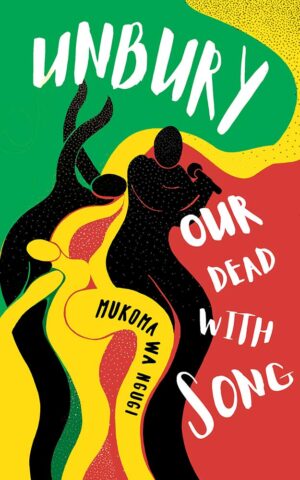I knew enough about the Tizita to believe it – that the first time you heard a Tizita that was yours, you fell in love with it. You never forget your first love; you never forget your first Tizita. Where were you when J. M. Kariuki was killed? Or Ruth First, Lumumba, Kennedy or Malcolm X? Where were you when you first heard it?
For me, it was in Boston, May 5, 2001. I was at the Charles River Pub – a bar that my friend G., a fellow Kenyan and then a professor of African Literature at Boston University, had introduced me to for its cheap drinks. G. was a chain smoker and, when with a drink in hand, was a master of finding deals – it was he who introduced me to Chinese wonton soup and rice all for three dollars and ‘cheaper and healthier than your Big Mac meal,’ he liked to point out.
The Charles River Pub – the CRP to us because it recalled CPR – was really a depressing joint. It was largely a hangout for Eritrean and Ethiopian expatriates: teachers, students, engineers and doctors, some old enough to be in nursing homes, gambling on slot and Keno machines. The counter was like a long trough, with the beer taps shaped like bowling pins in the middle, which the thirsty lined along.
True to G’s ability to find deals, the price of the tap Budweiser or the occasional shot of Jameson whisky were way below the regular Boston prices. But it was also the jukebox that brought us to the bar. A dollar bought you five songs, and five dollars gifted you a lifetime of revisited memories: vintage Jackson Five, Michael Jackson, Whitney Houston, Millie Jackson, Miriam Makeba, good old Hugh Masekela, Franco’s ten-minute Mario, African golden oldies, and a healthy number of Eritrean and Ethiopian songs in Amharic, Tigrinya and other languages that G. and I did not speak. We would pregame at the CRP, play the jukebox, catch a good buzz and then go on to the non-minimalist but more expensive bars.
At the CRP, those mourning their bets liked to play a sorrowful, bluesy version of the Tizita that they sang along to until laughter once again filled the club. I could not understand what the lyrics meant – all I knew was the Tizita would take the people of the Horn to a place that was much more hellish than their lives, and when they returned, they seemed better. In the same way there were Lingala songs and Malian blues that I liked, danced and romanced to, but never wanted to know the lyrics, there was a risk of disappointment that I never wanted to take. This I had learned the hard way when one of my favourite Habib Koite songs turned out to be about the hazards of smoking cigarettes, a song most probably commissioned by the Malian health ministry, or worse, a Western NGO.
The patrons, noting my disinterested enjoyment, would say, ‘My friend, finding your Tizita is like finding love; there is a Tizita out there for each one of us, and like in finding love, you also have to be ready to receive it,’ or variations of this. And I would laugh and threaten to get my guitar and play the plaintive yet celebratory ‘Malaika’, composed and sung by Fadhili William, who was to die penniless in a tenement slum in New Jersey while others made millions off of the song – a story made for The National Inquisitor. As a child, I must have fantasised about being the next Michael Jackson or Fadhili William. To the failure of that end, I had over the years learned to play only one song, ‘Malaika’. In parties, I would pick up a guitar and try to worm my way into a woman’s bed by playing the song. It never worked.
It was at the CRP that I heard a Tizita that I was to fall in love with – and it was a love strong enough to mark my life with a before and after. On May 5, 2001, the owner announced that he had a new Tizita and the CRP buzzed with excitement, patrons asking who the singer was, and he telling them it was a surprise. It was a hot, muggy afternoon, but he closed the door and the windows to silence the fast-moving life outside. He turned off the TVs and keno machines. The bar went quiet when he ceremoniously opened his cash register, took a dollar and walked to the jukebox.
A murmur grew as the jukebox refused to take the crumpled dollar bill. He straightened it out by running it against the side of the jukebox, tried three times as some patrons walked over to him, waving dollar bills in different stages of crispness. He got it to work.
‘My brothers and sisters, I present to you, a new Tizita by the great Aster Aweke,’ he announced solemnly. There was a silence so deep that we could hear the low mechanical whine as the machine searched for the song. I had never seen something like this before. In my hometown back in Nakuru, we loved music and, in the bars, sometimes we sang along to a favourite Kikuyu pop tune, sometimes to a country song, so I was bemused by the solemn fanfare. It is just a song.
And then my world shifted, just like that.
On first hearing her voice rising somewhere from the clouds of a choir symphony, I felt something in me unwind. Like the sharp painful release of a knotted muscle, it kept unwinding and unwinding, until the relief turned into anguish, then as the song ended, I was left with nothing but relief, happiness even. Whatever it was, that thing that had been in me for what felt like all my life was gone.
I looked around and it was as if I was seeing the world in colour for the first time. I noticed that my friend G. had brown pockmarks on his face. On the regulars, I saw grey hairs, gnarled hands, slight flaring of nostrils; heard coughs hacking in my ears, the low buzz of activity from the streets punctuated by the roar of a motorcycle; I could smell different colognes, knockoffs of designer ones, wafting above the smell of stale urine coming from the bathroom – something in me had snapped and left me, and the same world I had been inhabiting for years became sharper and in focus.
I pushed back my tears and went to the bathroom to compose myself. When I walked back into the bar, something strange had happened – no one was talking to each other. No one looked the other in the eye. I guess, in a way, as men and women hardened by one thing or another, we had shared too much. The owner declared one round for everyone at the bar, the spell broke, beers and whiskies were ordered, and it was like nothing had happened.
Later, when I read that when we are near death our senses sharpen, the journalist in me thought I might have been having a heart attack or a panic attack or simply a knotted muscle on my chest, something physical enough to induce or simulate a near death experience, and the Tizita just happened to have been playing. But I also knew that was the story I was telling myself.
I became obsessed. I begged for someone to translate the song for me. I bought beer and scratch-offs as bribes. And, usually, I would get someone interested; I would play the song, but somehow, the song just took over, and my would-be translator would lean back into the chair, or lean onto the bar counter and, with a slight smile of elated sadness, fold back into themselves.
‘My friend, this song has no translation – you know? You must have songs like that in your language? No?’ would be the inevitable response.
What does it mean? Even generally?
My friend, what can I tell you – there are no English words. The Tizita is the Tizita.
Are you telling me we feel and know differently in different languages? There has to be a way . . .
Well, my friend, find someone else. I have no desire to mutilate that beautiful Tizita.
And so it went on until one evening the owner beckoned me to an empty table and put a bottle of cheap whisky between us.
‘I will try and help you – what do you want to know?’ he asked.
‘Where does the Tizita come from?’ I asked him.
‘No one knows, my friend . . . maybe from our poets . . . in Ethiopia we are full of surprises. When Africa was being enslaved and Christianity brought to you through the barrel of a gun, we had received the word straight from God. Our Orthodox Church – straight from Christ himself! Our Tizita, who knows? It might have been around since then, before American blues, maybe from the beginning of time,’ he answered as he reached into his wallet and slid a dollar towards me.
‘Why don’t you go and play God’s gift,’ he advised gently.
I walked over to the jukebox and slotted in two dollars instead so we could hear the song over and over again. I sat down, and we looked at each other through the intro of ever-falling piano keys and drums dipping in and out of silence with soft brush strokes until Aster came in and sang the first verse.
‘The first two lines – she is calling for her love. Not her love, but the loss of it. She misses the pain of the loss. It is like a warm blanket. In feeling that pain, she can see her lover’s face. So it is not pain or loss, but rather the memory of him. But it is not just a memory, because she experiences the pain of that loss; she is alive again in the present with him. So the Tizita brings her lost love back to life, and it makes her sad and happy at the same time. It hurts to remember, but it is worse to heal. She does not want to heal because the wound, inside of it, is the love she lost, and it is alive,’ he explained.
‘And that is just the two lines?’ I asked him.
‘Yes, the first two lines . . . ’
‘And the rest of the song? What does it say?’ I asked eagerly.
‘That is all I can do for you. We love you, our Kenyan brother, but some things are for us. I cannot give it to you, because I cannot do it in such a way that will respect the Tizita, so that is all I can do for you. This is out of my respect for you. There have been some complaints. I ask you now to let the matter go,’ he counselled.
‘Complaints?’ I asked him, wanting to laugh in disbelief.
‘The bottle, it’s on the house,’ he said, and slid it across the table towards me.
‘Can you at least tell me one thing?’ I asked him.
‘Anything, my brother, except that which I cannot,’ he answered, pity in his voice.
‘Who sang the Tizita first?’
‘In Ethiopia, we have Azmaris, poets who are also musicians – a little bit like the Sudanese griots – they would move from funeral to funeral, wedding to wedding, party to party – singing praise, sometimes rebuking. It is a very tough life but – they also see a lot of life. Only one who has lived the life of wandering can sing a Tizita,’ he explained. He made his way back to his customers.
So I sat there and drank myself silly. Every now and then, a patron on his way to the bathroom would gently place his hand on my shoulder. I had tried everything I could think of: Yahoo and Google, nothing; back in 2001, they were too young. There was no YouTube back then, but even years later, the comments all said the same thing to the occasional request for an English translation – impossible, it’s something to do with memory, nostalgia. There was an essay by a professor on the Tizita, James Baldwin and Black American blues, and I eagerly read it, but no transcribed lyrics. At Boston University, I went to the African Studies Centre in search of Ethiopian students, but even they, broke as they were, would listen to the song and talk about everything else about Ethiopia but the song.
Desperate, I found an online international translation service, but I could not bring myself to use their services – it felt too cold and inanimate. I was desperate, but I did not want my Tizita destroyed for me to understand it. I would wait. In the meantime, I listened to that song a hundred times until, like any first love that is unfulfilled, I somehow managed to carve another life. To his credit, an amused G. helped me eat and drink inexpensively through my heartbreak.
There was a story I had heard countless times at CRP: the Eritrean and Ethiopian revolutionaries on one side, and on the other, Haile Mengistu’s soldiers; trench warfare that saw wave upon wave of soldiers killing each other at close range. Then one revolutionary started singing the Tizita, and one gun after the next went silent; one after the next, the sounds of gunfire kept growing more and more distant as more soldiers strained to hear the song and silenced their guns until the battlefield was quiet except for the singing and the groans of the wounded. As soon as the Tizita was done, the fighting resumed. Mengistu’s army suffered a backbreaking defeat. Such was the power of the Tizita, the story would end.
I knew enough about the story to know that most cultures have their version – Christmas and the First World War, truces declared for a wedding or to bury a hero who died in battle. But every time I heard it (with variations, of course), it sounded very real. And even though I did not know it then, every time I heard the story, something in me made me aware of my own life and how little I had done with it. It made me wonder whether if someone else were to narrate the story of my life, I would emerge having at least induced one truce through some great act or sacrifice.
Photograph © Nate Stevens

This is an excerpt from Unbury Our Dead with Song by Mũkoma Wa Ngũgĩ, published by Cassava Republic Press.








